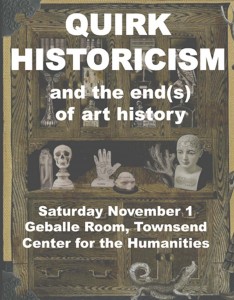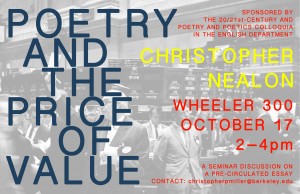Inge Hinterwaldner’s Parallel Lines as Tools for Making Turbulence Visible (Representations 124) has won the 2104 Schachterle Essay Prize from the Society for Literature, Science, and the Arts (SLSA).
“Building on actor-network theory and the history of photographic and cinematic technologies, Inge Hinterwaldner’s article is an elegant, smart, and meaningful contribution to scholarship in science and technology studies that examines the use of experimental visualization to model turbulence in air and water around 1900. The essay discusses how two physicists–Etienne-Jules Marey and Friedrich Ahlborn–contrived to make visible, to measure, and to record these phenomena.” —from the SLSA prize announcement
The Schachterle Prize is awarded annually by the SLSA in recognition of the best new essay on literature and science written in English by a nontenured scholar.
Inge Hinterwaldner’s research interests include computer-based art and architecture, image theory, model theory, and temporality in the visual arts. Her first book is entitled Das systemische Bild (The systemic image; Munich, 2010).



